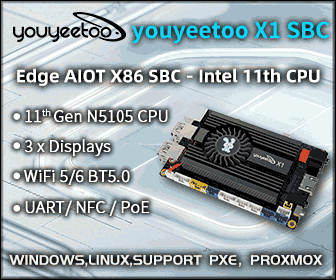Linux Benchmarks – Intel J3455 Apollo Lake vs Z3735F Bay Trail vs RK3399 and Other ARM Platforms
Since I’ve just installed Ubuntu 17.10 on MeLE PCG35 Apo, I decided I should also run some benchmarks comparing with other ARM and x86 Linux platforms I’ve tested in the past.I was particularly interested to compare the performance of Intel Apollo Lake processors (Celeron J3455 in this case) against higher end ARM processors like Rockchip RK3399 (2x A72, 4x A53) since systems have a similar price (~$150+), as well as against the older Bay Trail processor to see the progress achieved over the last 2 to 3 years. To do so, I used Phoronix Benchmark Suite against Videostrong VS-RK3399 results (RK3399 development board):
|
1 2 3 4 |
sudo apt install php-cli php-gd php-xml php-zip wget http://phoronix-test-suite.com/releases/repo/pts.debian/files/phoronix-test-suite_7.4.0_all.deb sudo dpkg -i phoronix-test-suite_7.4.0_all.deb phoronix-test-suite benchmark 1709271-TY-1704029RI26 |
The benchmark first issued a warning about “powersave” governor, but I still went ahead, and once completed I change it to “performance” governor:
|
1 2 |
sudo apt install cpufrequtils sudo cpufreq-set -r -g performance |
…and ran the tests again. All results are available on OpenBenchmarking. Let’s address the governor results first. cpufreq-info reports that powersave governor […]




